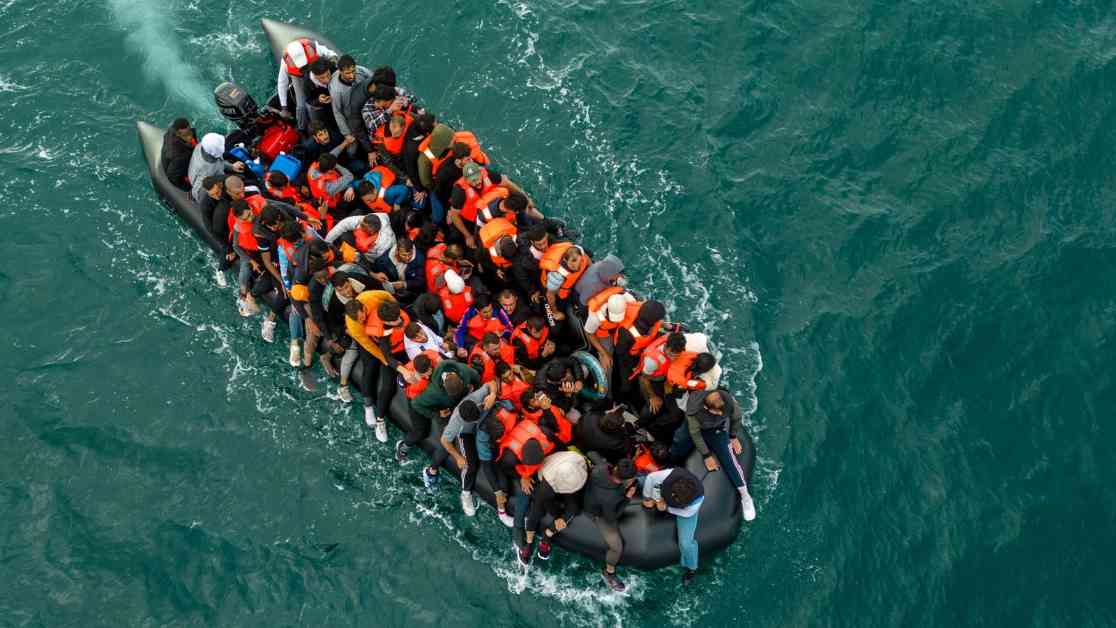UK Implements Groundbreaking Sanctions Regime to Combat People Smuggling
In a groundbreaking move, the UK government is set to introduce a “world first” sanctions regime aimed specifically at targeting people smugglers. This bold initiative, announced by Foreign Secretary David Lammy, is part of Labour’s comprehensive plan to reduce the number of Channel crossings by cracking down on criminal networks orchestrating these perilous journeys.
What the Sanctions Entail
While the exact details of the sanctions are yet to be unveiled, the government has emphasized that the primary aim is to cut off the illicit financial resources that fuel the operations of smuggling gangs. If the regime functions similarly to other sanction programs, it could involve freezing the assets of individuals suspected of involvement in people smuggling activities. Violations of these measures could carry penalties of up to seven years in prison, underscoring the seriousness with which the government views this issue.
International Collaboration and Impact
The UK’s new sanctions regime will be developed in collaboration with experts in the field, law enforcement agencies, and the Home Office. While it will be an independent UK initiative, the government remains committed to working closely with international partners to combat the scourge of people smuggling on a global scale. Prime Minister Sir Keir Starmer hailed the policy as “bold and innovative,” reflecting a comprehensive approach to tackling the root causes of irregular migration and organized immigration crime.
Labour’s Comprehensive Strategy
At the heart of Labour’s strategy to reduce small boat crossings is the dismantling of people smuggling networks through a combination of targeted sanctions, enhanced international cooperation, and investments in border security technology. The government’s decision to cancel the Rwanda deportation scheme in favor of establishing a Border Security Command with £150 million in funding underscores its commitment to prioritizing the safety and security of individuals risking their lives to cross the Channel.
As the number of migrants attempting the perilous journey continues to rise, reaching over 36,000 in 2024 alone, the need for decisive action to combat people smuggling has never been more urgent. While critics have raised concerns about the efficacy of Labour’s plan, proponents argue that the new sanctions regime represents a critical step towards disrupting the operations of criminal networks profiting from human misery.
In the face of mounting challenges and complex geopolitical dynamics, the UK’s pioneering approach to combating people smuggling signals a renewed commitment to upholding the values of security, justice, and humanitarianism in a rapidly changing world. As the government prepares to roll out this groundbreaking initiative, the eyes of the international community will be closely watching to assess its impact on one of the most pressing humanitarian crises of our time.













